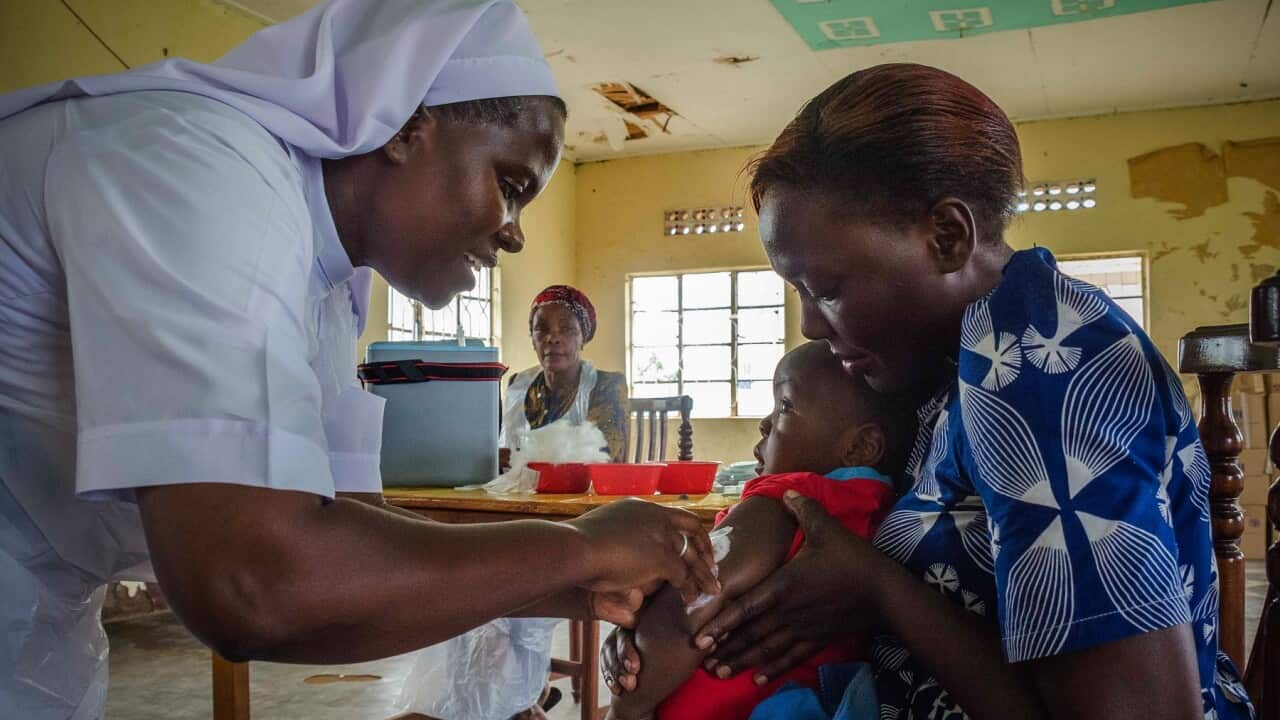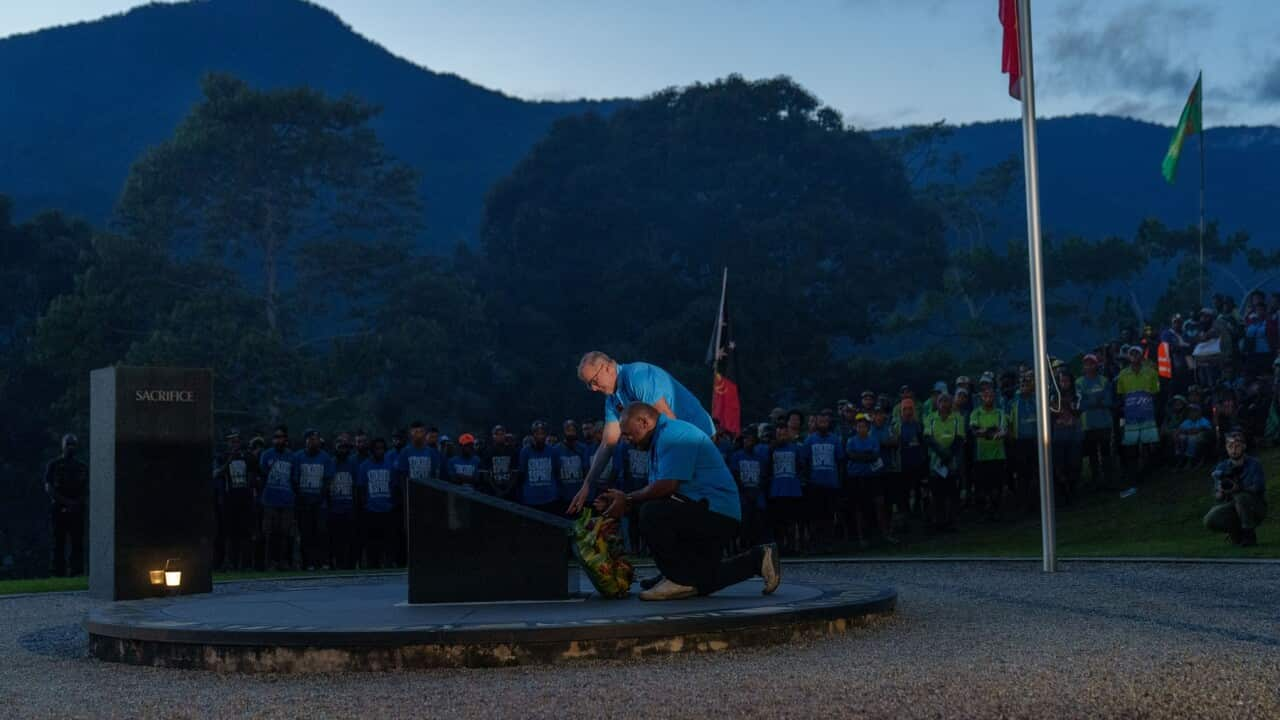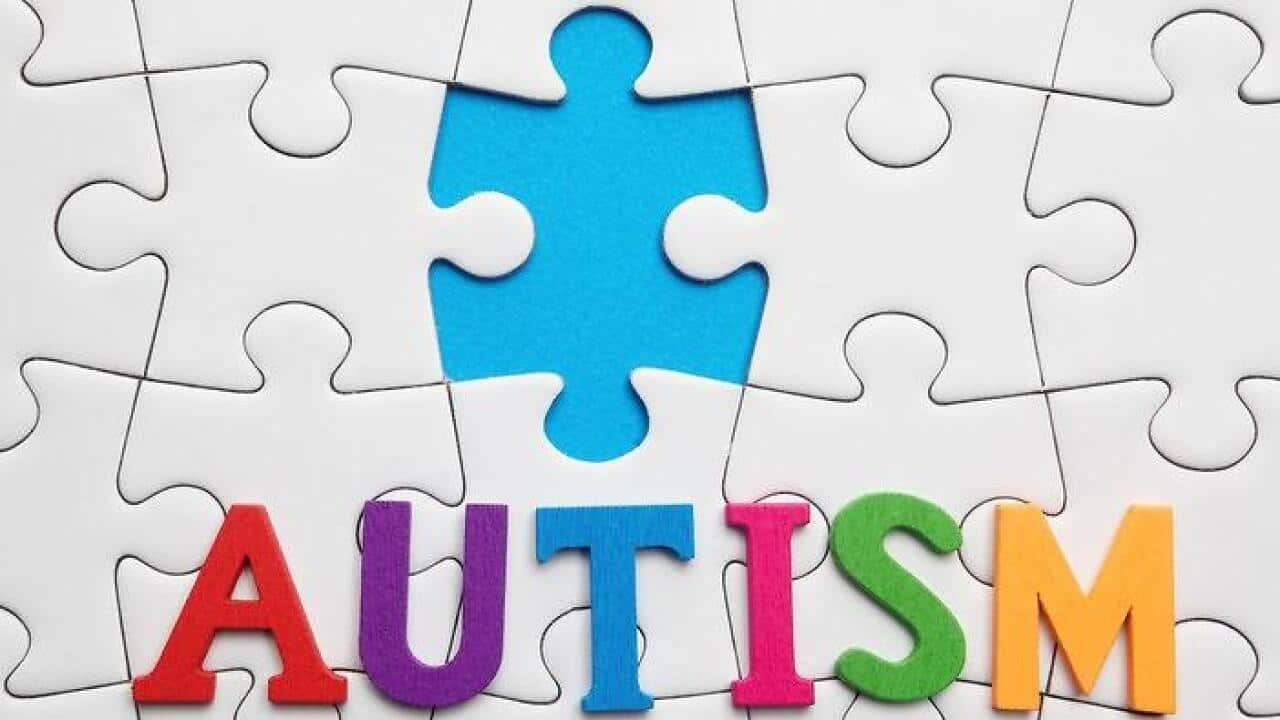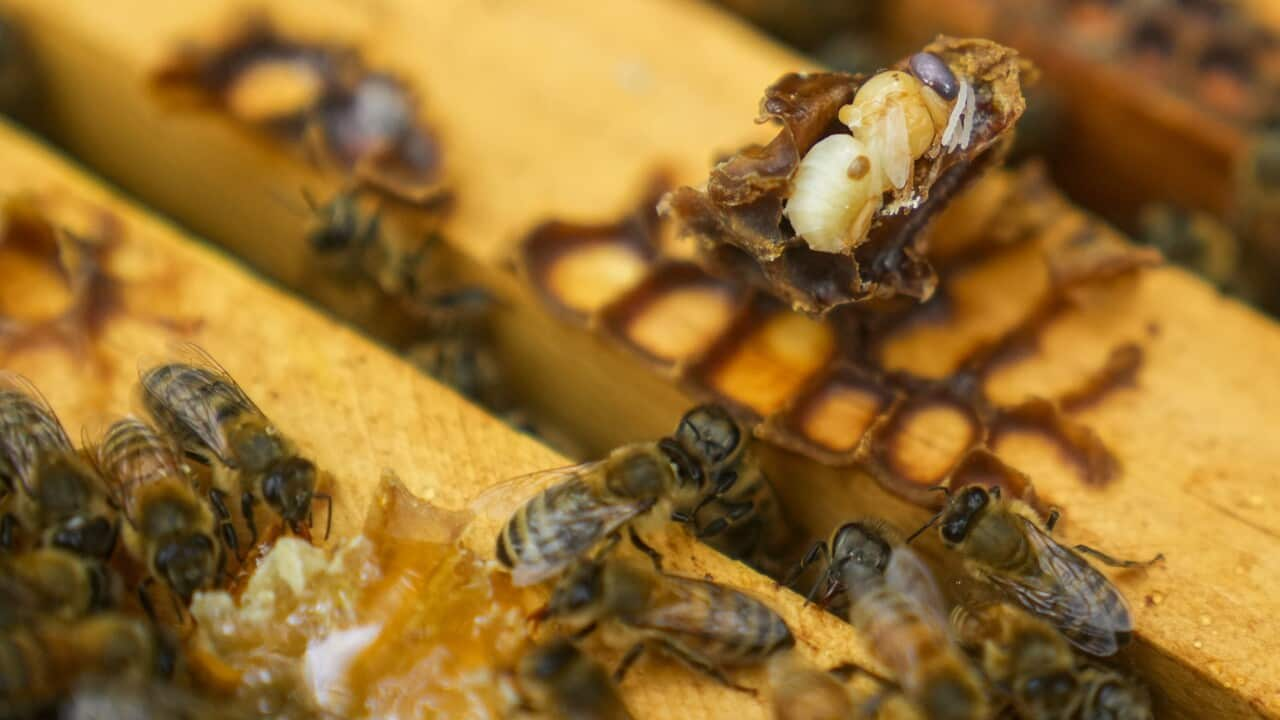Italian
La Nigeria è l'ultimo stato africano a venire dichiarato libera dalla malattia, dopo che meno di dieci anni prima ospitava più della metà dei casi globali.
Questa è la vita per Misbahu Lawan Didi.
Skateboard rolling along a footpath
Seduto su uno skateboard gioca con i suoi amici a para-soccer - calcio con le mani - uno sport che ha inventato oltre 30 anni fa.
Lui ed il resto dei giocatori sono rimasti paralizzati a causa della poliomelite.
"I want to believe that our contribution helps a lot."
Misbahu è il presidente della Associazione Nigeriana dei Sopravvissuti alla Polio.
Insieme ad altri che hanno contratto il virus, ha viaggiato sù e giù per la Nigeria, cercando di fare capire ai genitori l'importanza di fare vaccinare i loro figli.
"We ask anybody that, okay, you have seen us, you have seen how difficult we have come to you. Don't you think it's important for you to protect your child, not to be like us, because we know what our family have encountered. Many people rejected polio vaccine. But by the time we approach him for advocacy. They see how much we struggle for us to get there. They see how much we crawl, how much we have devoted our time just to help people to have healthier family."
La polio è un virus altamente infettivo che si prende normalmente attraverso acqua contaminata, colpisce i bambini sotto i cinque anni, indebolisce i muscoli e causa paralisi.
Non c'è cura, ma ci sono le vaccinazioni.
"Immunisations for all!"
Fare vaccinare la gente in Nigeria è stata una sfida logistica, e non solo per Misbahu e i suoi colleghi.
La guerra nell'area del lago Chad della Nigeria e sospetti profondi sul vaccino hanno complicato il lavoro degli addetti sanitari.
"We know that some health care workers have made the ultimate sacrifice and lost their lives in the course of providing polio vaccine to children."
La dottoressa Matshidiso Moeti è la direttrice regionale per l'Africa dell'Organizzazione Mondiale della Sanità.
Nel 2013, vennero sparati dei colpi di arma da fuoco verso nove addette sanitarie nella città del nord Kano, dopo che erano iniziate a circolare voci che il vaccino fosse un complotto occidentale.
Ci volle lo sforzo combinato di leader religiosi e tradizionali, del governo e di membri della comunità per lavorare insieme nel convincere i genitori a cambiare.
"And yeah, I'd like to pause and really pay homage to and salute these healthcare workers for their bravery and their commitment."
L'impegno è diventato uno sforzo lungo dieci anni.
[[Baby crying]]
Secondo l'Organizzazione Mondiale della Sanità, dal 1996 sono state somministrate più di 9 miliardi di vaccinazioni orali in tutta l'Africa.
Sempre più paesi sono stati dichiarati liberi dalla poliomelite, risultando in una stima di 1,8 milioni di bambini che sono riusciti ad evitare di venire contagiati dal virus.
[[People chanting]]
Meno di 10 anni fa, la Nigeria aveva più della metà dei casi mondiali di poliomelite, ma oggi è l'ultimo Paese in Africa a venire dichiarato libero dal virus.
English
Nigeria is the last African country declared free from the disease, having accounted for more than half the global cases less than a decade earlier.
This is the life for Misbahu Lawan Didi.
[[Skateboard rolling along a footpath]]
Sat on a skateboard he and his friends are playing para-soccer - football with their hands - a game he invented over 30 years ago.
He and the rest of the players are paralysed, because of polio.
"I want to believe that our contribution helps a lot."
Misbahu is the president of the Nigerian Polio Survivors Association.
He and others who have had the virus have been traveling around Nigeria, trying to get parents to understand the importance of having their children vaccinated.
"We ask anybody that, okay, you have seen us, you have seen how difficult we have come to you. Don't you think it's important for you to protect your child, not to be like us, because we know what our family have encountered. Many people rejected polio vaccine. But by the time we approach him for advocacy. They see how much we struggle for us to get there. They see how much we crawl, how much we have devoted our time just to help people to have healthier family."
While polio is a highly infectious virus normally picked up by contaminated water, it affects children under the age of five, and it weakens muscles and can cause paralysis.
There's no cure, but there are vaccinations.
"Immunisations for all!"
Getting people vaccinated in Nigeria has been a logistical challenge, and not just for Misbahu and his colleagues.
Conflict in Nigeria's Lake Chad area and deep suspicion over the vaccine has made it difficult for health care workers.
"We know that some health care workers have made the ultimate sacrifice and lost their lives in the course of providing polio vaccine to children."
Dr Matshidiso Moeti is the Africa Regional Director for the World Health Organisation.
In 2013, nine female health care workers were shot in the northern city of Kano, as rumors circulated that the vaccine was a Western plot.
It took the combined efforts of religious and traditional leaders, the government, and community workers to work together to convince parents to change.
"And yeah, I'd like to pause and really pay homage to and salute these healthcare workers for their bravery and their commitment."
That commitment has been a decade long endeavour.
[[Baby crying]]
According to the World Health Organisation, since 1996 more than 9 billion oral vaccinations have been provided across Africa.
More and more countries have been declared wild polio free, meaning an estimated 1.8 million children have managed to avert being affected by the virus.
[[People chanting]]
Less than 10 years ago, Nigeria accounted for more than half of all global cases of wild polio, but today it's the last country in Africa to be declared free from the virus.
Report by Chi Chi Izundu





